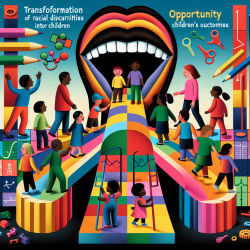Libraries have long been pillars of community support and education. However, recent research highlights that they can do even more to address social determinants of health (SDH) and reduce systemic inequities. A study titled "Census Tract Demographics Associated with Libraries’ Social, Economic, and Health-Related Programming" explores how library programming can be tailored to meet the needs of underserved communities.
The Role of Libraries in Community Health
Public libraries are more than just repositories for books; they are vital community hubs that can offer programs addressing economic mobility, health education, and social support. According to the study, libraries in areas with higher proportions of racial and ethnic minorities tend to offer more frequent economic and social programs. However, the availability of health-related programs varies significantly.
Key Findings from the Research
- Demographic Influence: Libraries in census tracts with higher minority populations offer more economic and social programs.
- Education Levels: Areas with lower education levels see fewer programs aimed at economic mobility and health.
- Poverty and Unemployment: Surprisingly, these factors were not directly linked to the frequency of library programming.
Implementing Change: How Practitioners Can Help
Librarians and community practitioners can use these findings to tailor their programming efforts. Here are some steps to consider:
- Assess Community Needs: Conduct surveys or focus groups to understand the specific needs of your community.
- Diversify Programming: Ensure a balance between economic, social, and health-related programs to address various community needs.
- Create Partnerships: Collaborate with local health services to enhance program offerings related to health education.
- Focus on Accessibility: Make programs accessible to those with lower education levels by simplifying content and offering multilingual resources.
The Path Forward: Encouraging Further Research
This study opens up several avenues for further research. Practitioners are encouraged to explore how libraries can better serve their communities by addressing gaps in programming. Understanding the barriers that prevent certain demographics from accessing library resources is crucial for developing inclusive strategies.
Libraries have the potential to be transformative spaces that not only provide information but also empower individuals through targeted programming. By aligning library services with community needs, we can help bridge the gaps in social determinants of health.










